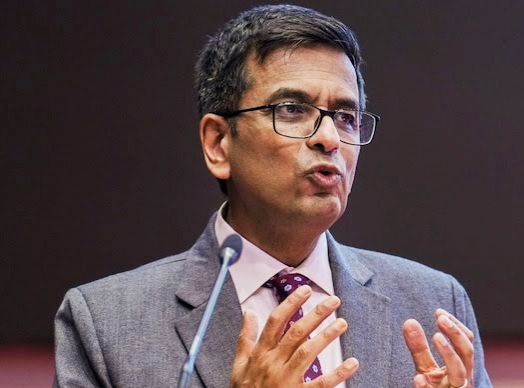Anushri Joshi
In a recent address at Kanhersar village, Khed Taluka, Chief Justice of India (CJI) DY Chandrachud remarked upon the profound complexity of adjudicating the Ayodhya-Babri Masjid dispute, a case which, by his own admission, required divine intervention. Speaking to an audience, CJI Chandrachud revealed that, amid the gravity of the case, he sought solace in prayer, entreating the deity to guide the judiciary towards an equitable resolution.
The Ayodhya dispute, was heard by a five-judge bench of the Supreme Court, with CJI Chandrachud playing a pivotal role. Reflecting on the case, which occupied the apex court’s attention for over three months, the Chief Justice noted, “Very often, we are confronted with cases where no clear solution emerges. Such was the predicament in the Ayodhya matter. I sat before the deity and implored him to find a resolution, for even the judiciary sometimes requires divine grace.”
The Ayodhya verdict,2019, remains one of the most momentous and sensitive judgments in Indian legal history. The Court, while recognising the illegality of placing idols within the Babri Masjid and the subsequent demolition of the mosque in 1992, permitted the construction of a Ram Temple on the disputed site. In a gesture of restitution, the Court allocated five acres of land at an alternative location for the construction of a new mosque, thus attempting to balance religious rights with the principles of justice.
Justice Chandrachud’s reflections underscore the human element in judicial decision-making, where legal intricacies intersect with faith and morality. His remarks not only highlight the challenges faced by the judiciary in addressing deeply contentious issues but also the weight of responsibility carried by those tasked with upholding the rule of law in a diverse and pluralistic society.

